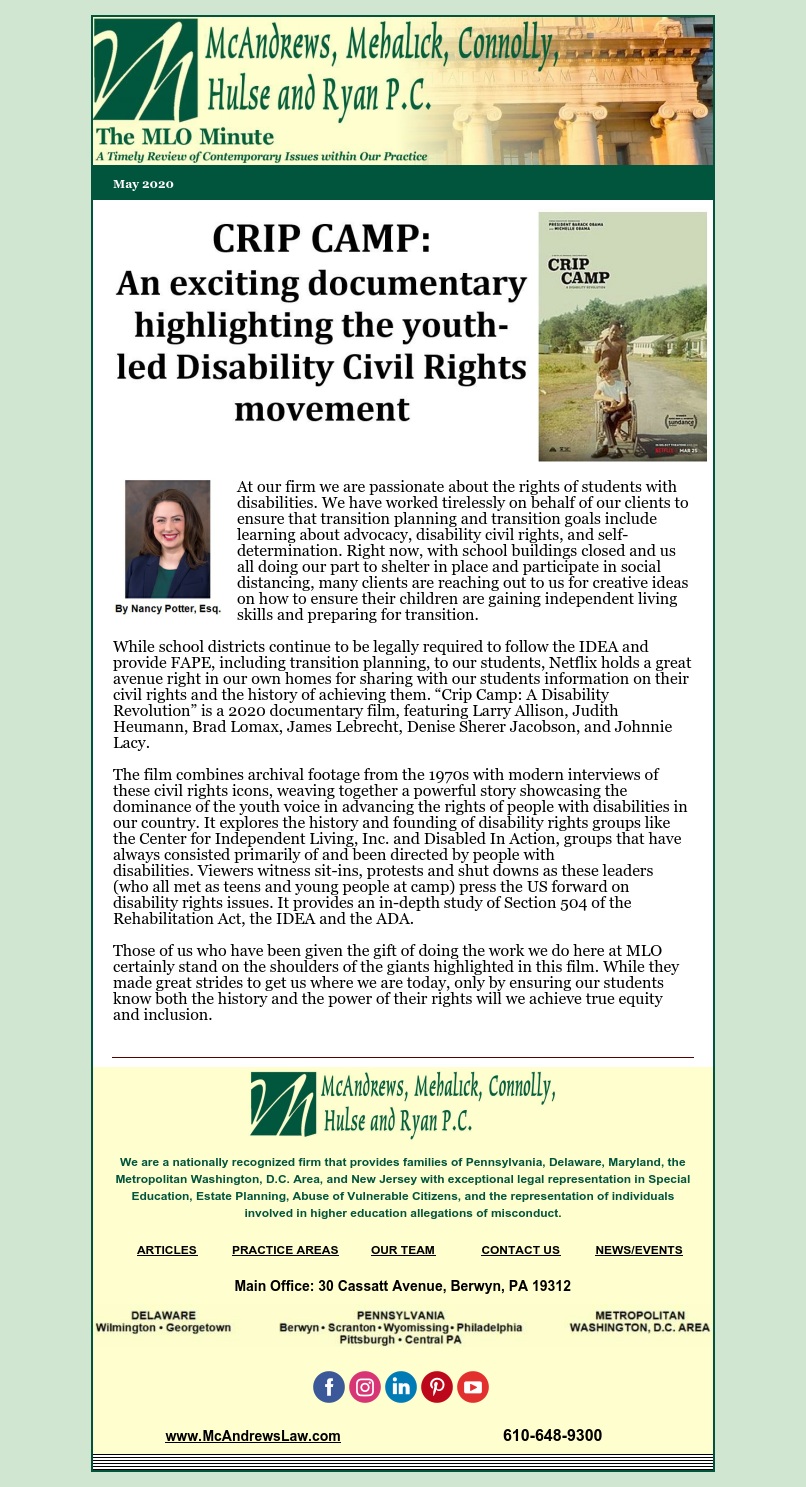May 2020
The MLO Minute: By, Nancy Potter, Esq.
At our firm we are passionate about the rights of students with disabilities. We have worked tirelessly on behalf of our clients to ensure that transition planning and transition goals include learning about advocacy, disability civil rights, and self-determination. Right now, with school buildings closed and us all doing our part to shelter in place and participate in social distancing, many clients are reaching out to us for creative ideas on how to ensure their children are gaining independent living skills and preparing for transition.
While school districts continue to be legally required to follow the IDEA and provide FAPE, including transition planning, to our students, Netflix holds a great avenue right in our own homes for sharing with our students information on their civil rights and the history of achieving them. “Crip Camp: A Disability Revolution” is a 2020 documentary film, featuring Larry Allison, Judith Heumann, Brad Lomax, James Lebrecht, Denise Sherer Jacobson, and Johnnie Lacy.
The film combines archival footage from the 1970s with modern interviews of these civil rights icons, weaving together a powerful story showcasing the dominance of the youth voice in advancing the rights of people with disabilities in our country. It explores the history and founding of disability rights groups like the Center for Independent Living, Inc. and Disabled In Action, groups that have always consisted primarily of and been directed by people with disabilities. Viewers witness sit-ins, protests and shut downs as these leaders (who all met as teens and young people at camp) press the US forward on disability rights issues. It provides an in-depth study of Section 504 of the Rehabilitation Act, the IDEA and the ADA.
Those of us who have been given the gift of doing the work we do here at MLO certainly stand on the shoulders of the giants highlighted in this film. While they made great strides to get us where we are today, only by ensuring our students know both the history and the power of their rights will we achieve true equity and inclusion.





